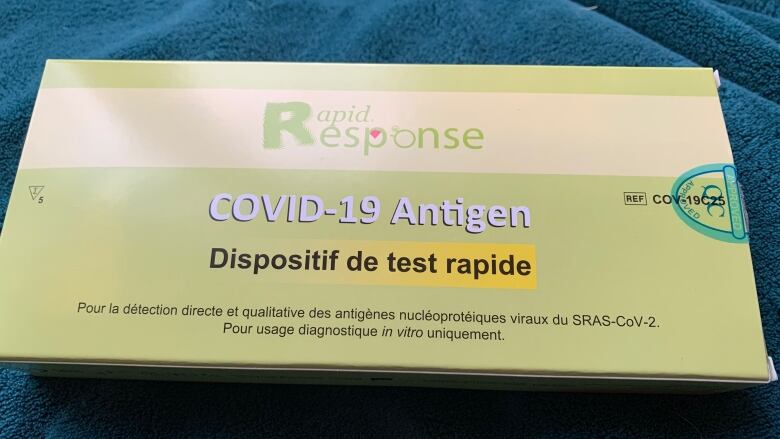Manitoba makes rapid tests for COVID-19 available to First Nations students
Federal government sending initial shipment of 110,000rapid antigen tests to Manitoba, officials say

First Nations students in Manitoba will soon have access to rapid COVID-19 tests in an effort to reduce the number of cases in schools after the winter break.
The provincial government announced Friday that it is making tests available to students in kindergarten to Grade 6 in First Nations schools as a first step toward providing tests tostudents across Manitoba.
The federal government is sendingan initial shipment of 110,000rapid antigen tests to the province, provincial officials said during a technical briefing with reporters.
The province is starting with First Nations schools and later plans to expand to other school divisions. There are approximately 22,000 students in 63 First Nations schools, including 57 on-reserve schools and six schools operated by Frontier School Division.
"What's paramount in this is the health and safety of the children," said Charles Cochrane, executive director of the Manitoba First Nations Education Resource Centre, which provides education support services for 58 First Nations schools.
"And whatever mechanism is being used to do that,if it means rapid testing all these kids that are going out to schools, then so be it."
Each kit has five tests.The test kits will be sent home with students, either before the start of the winter break or once they return.
The tests are meant to be taken every three or four days as students returnto school.
Any positive tests should be followed up with a more accurate PCR test, the officials said. Families are not obligated to report test results to schools.
Because the initial supply won't cover all of those students, the distribution will focus on the most remote schools first. Any tests that arrive inManitoba before the winter break will be available for kids to take home, while the rest will be available once students return in January.
Manitoba started administering COVID-19vaccines to children agefive to 11 on Nov. 24.
Although children living in First Nations communities can get their second dose 21 days after the first, none have had enough time to get both doses and have a full immune response take effect.
Officials have warned people to avoid large gatherings over the holidays as the highly transmissible Omicron variant has begun spreading in Manitoba.
Over the course of the pandemic, including early in the vaccine rollout, the province has prioritized people living in First Nations communities, who have disproportionately suffered higher rates of infection and severe outcomes fromCOVID-19 due to long-standing issues such as inadequate housing and lack of medical services on reserves.
Cochrane didn't know when tests would begin arriving in communities. Logistical challenges, such as communities that are only accessible by air or winter road, could cause some delay, he said.
The rapid tests are available for use on a voluntary basis. Health officials are still looking at the best way to make rapid testing kits available to more people, with more information expected in the coming days.
The province has ordered more rapid tests. It expects another shipment of 110,000 to arrive soon, and has ordered a total of 19.8 million by the end of March.
That would make the tests more widely available to schools, businesses and non-profits.
The province has been shipping morethan 500,000 tests a months to businesses, as well as providing tests for staff at personal care homes, schools, child care centres, health care and publicservices.
It currently has about 1.2 million tests in its inventory.
The test kits the province currently has differ from ones being given to students. Current test kits come in boxes of 25 to 50 tests, while the student kits have five.
With files from Ian Froese and Cameron MacLean












_(720p).jpg)


 OFFICIAL HD MUSIC VIDEO.jpg)
.jpg)



























































































